 Yogita Bangar
Yogita Bangar
Yogita was born in Marout, a small village in Haryana’s Jhajjar district. Jhajjar, till very recently, had the worst sex ratio in the country. Having spent the majority of her childhood in the village, she often witnessed gender-based discrimination in the form of female foeticide, denial of education, dowry, bride buying, honour killings and caste-related hierarchies. Her experiences and privileges led her to pursue a career in law and she recently completed a Master of Laws in Human Rights course from NLSIU, Bangalore. She has worked on issues ranging from environmental conservation and tribal rights to gender justice and legal aid. Recently at NLSIU, she was part of the drafting committee for two legislations for the Government of Karnataka: one on ‘devadasi’ women and another on slum dwellers’ land rights. She is passionate about world cinema, art, history and criminal litigation. Through this fellowship, she wants to understand the various aspects of urbanisation which impact crime rates in cities.

Aila Bandagi Kandlakunta
Aila has a Bachelor’s degree in Social Sciences majoring in sociology, psychology and economics and a specialisation in post reform transformations in India. She has a master’s degree in Development Studies with a specialization in Urban Studies and Conflict Studies. Wanting to find her passion, she has taken up research projects in the fields of handloom weaving in B.A and conditional cash transfer schemes in M.A at the Tata Institute of Social Sciences, Hyderabad. Having lived in a city which was described as world class but could not survive a summer without deaths and monsoon without houses flooding, she decided to do whatever she can, to improve the cities of the world. Having interned with a variety of NGOs, government departments, corporates and research organisations, she identifies action based research as her strong suit. Being a cultural enthusiast, she believes in using creative mediums such as theatre, dance and films as tools for social change. While being a passionate writer and avid reader, she also deeply enjoys travelling and food.
 Aishwarya K S
Aishwarya K S
Aishwarya was born and brought up in Bhubaneswar but went on to pursue higher studies and work opportunities in other cities. She is a passionate environmentalist who believes in the importance of integrating environmental sustainability while addressing issues in every sector. She completed her Master’s degree from TERI University, New Delhi and went on to work in an environmental NGO in Mumbai. She is an avid reader, extremely fond of animals and a keen learner who is always up to explore new avenues.
 Anahita Ganjoo
Anahita Ganjoo
Anahita is a graduate of Srishti Institute of Art, Design and Technology. She has a Bachelor’s degree in Contemporary Art Practice. She likes thinking/talking about art history, cinema, cultural narratives, ethnography, spirituality, gender identity and intersectional feminist thought. She is currently trying to think of ways to convert to an organic and sustainable way of life.
 Ananya Biswas
Ananya Biswas
Ananya graduated from Presidency College, Kolkata with Sociology Honours in 2013. She then moved to Mumbai to complete her Master’s from the University of Mumbai. Thanks to Shantaram! She was associated with the Public Systems Group at IIM Ahmedabad for two years as an Academic Associate. She is enthusiastic about cities, culture and people. She is specifically interested in ‘adda’ (a social gathering unique to Kolkata for discussing current affairs especially after work) and sexuality through the lens of what Habermas called ‘public sphere’. A theatre, film, fashion and politics enthusiast, Ananya loves to understand Southern cities, Urban Politics and Urban fashion through these modes of practices. Ghatak’s films on Partition and trauma drew her to study Global Cities in the wake of new immigration policies, neo-international boundaries. Kamaladevi’s works taught her resilience and how strength can weave beauty in a seemingly unjust world and need not be masculine at the same time. Finally, IIHS inspired and helped her put together all of these through a spatial story perspective.
Graduated from Presidency College, Kolkata, Ananya moved to Mumbai to complete her Master’s in Sociology from the University of Mumbai. Thanks to Shantaram! She was then associated with the Public Systems Group at IIM Ahmedabad for two years. Enthusiastic about cities, culture and people, she is glad to have herself landed in UFP. She is interested in handlooms, handicrafts and livelihoods – the second largest provider of livelihoods in country. But what bothers her is the politics and a certain kind of Urban Dream which has unfortunately forced the sector into being called the ‘sunset industry’. Thus she would want to work at the sector through a more policy level intervention and will continue working till she sees the ‘sunrise’.
 Ananya Ramesh
Ananya Ramesh
Ananya sought to pursue a career as an architect and received her Bachelor Degree in Architecture from RV College of Architecture. Training and working as a professional, highlighted the niche clientele of architects. This drove her to condition herself to work in co-operation and collaboration with the various stakeholders of our living environment. She completed a dual-master programme at the Bauhaus University Weimar and CAUP, Tongji University Shanghai, gaining experience in urban planning and research.
A Bangalore local and brought up with an armed forces background, Ananya travelled across the country absorbing the diversities and complexities of the Indian context. Living abroad for her masters, was a learning experience beyond academics. The systemic processes of cities, governance and administration, citizen engagement, partnership between academia-research-practice, implementation and enforcement strategies, were among other aspects that she observed first hand. Through UFP, she would like to gain the skills to apply these lessons to the local context. Her research interests include urban governance and its socio-spatial manifestations, urban mobility including pedestrianisation and intermediate public transport, role of land markets and real estate in urban growth and collaborative planning. In addition to her academic pursuits, Ananya is a Bharatanatyam dancer and Carnatic Classical singer.
 Anish Mannam
Anish Mannam
Anish did his Bachelors in Civil Engineering and Masters in Chemistry as part of a dual degree programme from BITS Pilani. During his civil services exam preparation, he realized that interdisciplinary approach is needed to solve the current challenges faced by humanity. His major focus is on resources management which is interlinked with Environmental Conservation and Sustainable Development. With training in technical background and interdisciplinary knowledge from sectors of Law, Humanities, Governance, Economics he believes several issues could be solved with appropriate research, data analysis and implementation.
 Anubhav Pradhan
Anubhav Pradhan
Anubhav Pradhan is a doctoral candidate working on colonial ethnography and the British imagination of India under the supervision of Prof Baran Farooqi in the Department of English, Jamia Millia Islamia. He has served Primus Books as its Senior Marketing Editor, and the Department of English, Bharati College, University of Delhi as an Assistant Professor. His M.Phil dissertation, on articulations of space and denial in contemporary Delhi, was under the supervision of Prof Simi Malhotra: he continues to engage with various aspects of Delhi’s convoluted urbanisms. He enjoys walking, reading, writing, and armchair debating; is interested in the conception, production, and dissemination of cultural artefacts; and is a strong votary of sustainable development and the preservation of Delhi’s (in)tangible heritage from ruthless development. He may be contacted at anubhav.pro18@gmail.com.
 Apoorva Sharma
Apoorva Sharma
Apoorva’s experience of studying architecture in CEPT University, opened up many layers of the city for her. She did her training in Shanghai and exchange at TU Delft. She has traveled across Asia and Europe, and loves discovering places on foot and recording her experiences through sketching and writing. She believes creative processes have the potential to transform our cities through exploring alternative futures. In this regard, she has worked with ‘People in Centre’ to prepare a training program for rural construction workers. She also co-mentored and/or assisted workshops on design thinking. Her current work interest is on repair and retrofit of buildings and the embedded processes involved.
 Bhargav Oza
Bhargav Oza
Bhargav was born and brought up in Rajkot, Gujarat. While pursuing his Bachelor’s degree in Business Administration (Honours) from Ahmedabad University; he participated in extra-curriculars like skit, mime, creative writing competitions, elocution and extempore, he headed the editorial team of the college’s wall and print magazine – Drishti and was part of the college’s Event Management Team; and developed perspective and confidence to face future uncertainties. He also participated in a social science research project on Dalit atrocities in the Kheda and Anand districts of Gujarat. He has written and presented papers at national and international conferences. In 2014 he joined M.A. in Society and Culture programme in IIT Gandhinagar which promised an inter- disciplinary approach to knowledge. He worked on his writing skills and continued presenting papers at conferences. His dissertation was on ‘Role of caste and class in shaping up urban neighbourhoods of Chandkheda and Ranip in Ahmedabad’. Some of the courses like Paradox of Indian Democracy; History of Dissent; Humanism, posthumanism and anti-humanism; etc helped him build a foundation in social sciences as well as expanded his interest areas into diverse \disciplines like political theory, history and philosophy.
His internship project was tiltled ‘Financialisation of domestic economies’. He joined Unnati – Organisation for Development Research, as a Programme Associate and worked on a project titled: “Ensuring Nutrition Security and Buliding Resilience amongst Dalit and Tribal Communities in the Thar Desert”. He feels that Urban Fellows Programme at IIHS is a good opportunity for him to return back to his selfcommitment to academics.
 Divya Chand
Divya Chand
Divya hails from the city of Nagpur in Maharashtra and studied architecture at the School of Planning & Architecture, New Delhi.
As an architecture student, many of her initial projects focussed on urban areas to document and analyse them, with much work done in the walled city of Old Delhi. Her academic dissertation dealt with the perception of cities (Shahjahanabad in particular) shaped by the written word, specifically travel-writing over the centuries. Other projects in the urban context dealt with designing high density environments and studying the impact of large scale urban construction environments on the city. She was involved in organising a few events and heritage walks in Delhi while studying architecture.
In 2016, she interned at Wonder Grass Initiative in Nagpur and worked hands-on with bamboo to design affordable and eco-friendly, prefabricated cottages and sanitation units. Her architectural thesis was the proposal of a Cultural Centre and Tourist Retreat in the fringes of Aizawl city in Mizoram, which is an exploration of sustainable Bamboo-construction technologies that would be relevant in an urban scenario.
She loves to walk in the city, read about new places and explore them, write and photograph. She enjoys creating things and her intent is to work towards understanding the complexities and heterogeneity of neighbourhoods in Indian cities and arrive at agreeable solutions to steer urbanisation in a positive direction.
 Edwin Thomas
Edwin Thomas
Edwin Thomas is from Dubai, United Arab Emirates. Growing up as a proud Malayali belonging to a middle class family in the Middle East helped him understand how extreme class inequality and modern slavery operate in the backyard of glitzy development. Furthermore, his interest in issues like gender and sexuality, HIV/AIDS activism, American politics and international relations led him to pursue a Bachelor of Arts in Journalism, English Studies and Psychology from Christ University, Bengaluru. Since then he has worked as a Sub-Editor and contributor for Youth Ki Awaaz in New Delhi and as an Editorial Assistant for Raintree Media. During his tenure at YKA, he helped bring to national spotlight a sexual harassment scandal at his alma mater. Currently, his bias towards translating larger human rights issues into parts like access to healthcare, basic government services and equitable allocation of resources has put him on a path to a career in human rights advocacy. However, his inability as a trained journalist to understand key issues in more complex terms led to an interest in subjects like urban policy and eventually, the UFP.
 Evita Das
Evita Das
Evita Das is a development studies graduate from Tata Institute of Social Sciences. Her previous research was on Looking Back “Secularism” and “Democracy” in Muqaddimah. She has always been inquisitive in history of discourses, spaces and the evolution of it. Currently working with Jan Sahas in a rural area on caste and religion, she thinks it is very important to understand the right to city in the urban spaces through the caste and religion lenses.
 Karthik Bhaskara
Karthik Bhaskara
Like in most Indian households, Karthik was encouraged to run the traditional rat race of doing an engineering and landing a job. After his bachelor’s in mechanical engineering from NITK Surathkal, he ended up as a business analyst with Capital One. During the one year at capital one, he took a step back and tried to understand the reasons for running this race and whether this is what he wanted to do for the rest of his life. This line of introspection lead him to abandon the lucrative corporate career and explore the expanses of knowledge this world has to offer. The Young India Fellowship offered him an ideal foundation to discover his true passions which was urban sustainabilty. After the fellowship, he worked with the Indian Institute for Human Settlements exploring and understanding the city of Bangalore. He is a self proclaimed “lifelong student” and a nostalgic Bangalorean. He aims to learn urban sustainabilty in ways he can apply to truly make urban spaces more sustainable from the ground level. His hobbies are centered around adventure sports and travel. He practices an ancient form for marital arts called “Sailum”. He is a certified open water scuba diver and a biker.
 Leona Dsouza
Leona Dsouza
Originally from Mangalore, Leona has lived between the Middle East, Bangalore and Mumbai where she graduated from St. Xavier’s College. While in college, she studied English Literature and Anthropology, focusing on narratives of the city, globalization and identity. Later she went on to wander through the corporate world for a few years working as a writer, only to find her way back to those subjects and themes from her academic days. Growing up in a single parent household, Leona’s interest in women’s issues is of special importance and through the fellowship she hopes to tackle the questions of equal access, self-empowerment and marginalization.
 Malavika Narayan
Malavika Narayan
Malavika holds a post-graduate degree in Political Science from Delhi University. She was born in Kerala and did most of her schooling from Rishi Valley in Andhra Pradesh. During her five years as a student in Delhi, she was associated with the Peoples Union for Democratic Rights which introduced her to the practical real-time operations of power and sharpened the theoretical perspectives learnt in class. A starker picture of the failings and shortcomings of democratic citizenship ironically strengthened also belief in it as a system capable of realising and sustaining a more equal and just society. Her interest now is to practically orient her ideals by acquiring a technical training geared towards effective intervention in social problems. Since research and writing is what she enjoys the most, she hopes to use this as the key mode of practice to engage from the field, and develop a more grounded knowledge base which can later enable policy work.
 Neha Lal
Neha Lal
Neha was born and brought up in Delhi and completed her Masters in Sociology from Delhi University (D.U.). With interests ranging from urban history, spatial practices to issues of governance and sustainability, she completed her M.Phil from Delhi School of Economics at D.U on urban aesthetics and policy planning in millennial Delhi. She loves to read on and walk through cities and wishes to work within the intersections of urban practices and policy regimes. She has earlier worked on research projects and documentaries on Delhi’s urban history and contemporary challenges with themes like urban housing and design, gentrification in urban spaces, wall art, river ecologies and land use.
 Nirupama M Vidyarthi
Nirupama M Vidyarthi
Nirupama M Vidyarthi, is a fresher architect from Bangalore. One of her first introductions to urban study was while working on an architectural competition in her 2nd year of architecture, she has since then explored this interest through courses, competitions and voluntary work. Cities are our points of impact where we can affect a positive transformation and being passionate about environmental activism right from school. She looks forward to bringing about a change in society especially by addressing environmental concerns. Through her experience of working in landscape firms, she has been introduced to aspects of ecological planning, and hopes to understand other facets like that of sociology, culture, human-development, economics and policy through the course of the Urban Fellow Programme.
 Nooreen Fatima
Nooreen Fatima
Nooreen comes from a humble family in Allahabad. She is an architecture graduate from Faculty of Architecture & Ekistics, Jamia Millia Islamia, New Delhi and recently finished her Masters in Urban Design from School of Planning and Architecture, New Delhi.
In her 7 years of academic experience she engaged herself in multiple urban research and design projects that led her to analyse the socio-cultural, economic and political context of habitable settings in India, made her connect with people and understand the challenges faced in an everyday Indian city. Her post-graduate research work ‘Perception of Sex Workers in Khidki Village’, ‘Social value of urban spaces: Case of Anupam Market and Saket District Centre’ and ‘Is this a city? Case of Khidki Village’ led her to understand the unjust, highly prejudiced and complex socio-political landscape of Indian cities and motivated her to voice these urban conditions to bring a change in the status quo.
During her work as an architect, she engaged in multiple community driven architectural projects such as primary school, artisan centre, mosque etc located in villages outside the city limits.
Her research interest lies in spatial injustice, politics of space, informal system of governance in Indian cities, socio-spatial patterns etc. She is an active researcher, travel enthusiast and likes to keep a travel journal. She also finds her interest in urban sketching and abstract portraits.
 Pallab Deb
Pallab Deb
Pallab was born in Silchar, Assam, where he stayed till he completed his 10+2 level education. After spending a year in Guwahati, he joined B.A. English (Honours) course at Kirori Mal College, Delhi University, and then changed tracks to do his Masters in Sociology from Delhi School of Economics. While he had always been interested in the urban and how identity politics get mapped onto the geography of the city, the Urban Sociology and Symbolism papers during his masters course helped him hone his ideas. To this end, Pallab has been part of two research projects; one looked at the interplay of the urban space and context-specific performances of cultural artefacts, while the other looked at the role of time and space in the formation of identities by looking at the identitarian politics and problems of self-perception within the Sylheti community in Barak Valley, southern Assam. He hopes that the Urban Fellows Programme will help him gear his theoretical interests towards more practice-oriented outcomes through its inter-disciplinary course structure.
 Pragya Priyadarshini
Pragya Priyadarshini
The two words that are sure to lure Pragya into any learning adventure are ‘inter-disciplinary’ and ‘problem-solving’. Pragya studied visual communication at NIFT Bangalore and took her graduate project about menstrual health awareness and sustainable menstrual practices into villages surrounding the Auroville bio-region, while working with multiple NGOs in Auroville for a year. Before UFP, Pragya was working as a researcher with a design thinking and business innovation firm in Pune, specializing in megatrends-forecasting and ethnographic storytelling. She has also had a brief stint with The Hindu, with bylines ranging from cultural narratives to fashion forecasts.
A self-proclaimed ‘people-nerd’, Pragya likes studying people, communities & cultures and creating smart design strategies for them. She also takes keen interest in mental health awareness, development led displacement, systems thinking and social design.
Though a Garhwali by descent, Pragya is a child of multiple migrations- including her own- in search of education, experiences and jobsstarting from Bareilly in Uttar Pradesh to multiple cities including Bangalore, Chennai, Auroville & Pune. She takes pride in her eclectic aesthetics, cross-cultural exposure and in her voracious appetite for knowledge.
 Priyakshi Gogoi
Priyakshi Gogoi
Being born and brought up in a village of Sivasagar district in Assam, Priyakshi did her graduation in economics from Guwahati University. Having been part of a student political organization since school days, she had a continuing wish to work in the social sector and so joined the NGO Society for Social Transformation and Environmental Protection. For the next three years, her work was mainly with street vendors which allowed her to get a grounded perspective on the problems faced by informal workers and other livelihood issues in urban areas. She also worked on the issue of women and child health among tea garden workers. To further consolidate her knowledge to work in this sector, she did a masters in social work through a distance learning program. Through this fellowship, she hopes to bring together her theoretical and practical insights, and polish her skills to better contribute to more equitable development practices.
 Sabika Abbas
Sabika Abbas
Sabika is a performative poet who is the founder of an initiative called Sar-e-rahguzar: Poetry on the streets. She has been a student of history and conflict studies. She is deeply influenced by the feminist and queer rights movement. She also works as an alternative educator and aims to start her own alternative school.
 Sabika Zaidi
Sabika Zaidi
Sabika is from Delhi and has completed her higher education there as well. Her degree in Architecture from Jamia Millia Islamia, taught her valuable design skills and also instilled a consciousness to observe and question status quo around her. She has worked on several academic and professional research-oriented projects which gave her the opportunity to comprehend a range of issues faced by people living in urban settlements across North India. As an architect and urban practitioner, she looks critically at ideas that strive to achieve universal welfare in the context of Indian cities. With a belief that targeted welfare programmes can achieve higher levels of inclusion and equity, she wishes to learn to sensitively approach the various complex and layered situations of the urbanizing centers of India.
 Sachinkumar Rathod
Sachinkumar Rathod
Sachin has done under-graduation in Criminology, Political Science and Kannada Literature from Karnataka College Dharwad. Recently, he completed a master’s in Public Policy and Governance from Azim Premji University, Bengaluru. During his two years at Azim Premji University, he has been exposed to interdisciplinary, systematic empirical research methodology, which has given a meaningful direction to his interests. He has worked as an intern with WRI-India and Indian Housing Federation, Bengaluru. He has undertaken an independent field study on ‘Drink and Drive’ in Bengaluru. He has also explored his interest in cricket, athletics, theatre and story-telling adherent to human life. Apart from this he is also active cadet of NCC. He participated in the ‘Thal Sainik Camp’, New Delhi and was awarded for excellency in the firing competition. He comes from a rural, Kannada background, which he uses as his strength rather than weakness.
 Sarat Chandran
Sarat Chandran
Sarat graduated as an architect from the School of Architecture and Planning, Chennai in 2016. He became interested in archaeology and then history during the final year thesis, which subsequently led to reading up on sociology, political science and economics. Uncertain about taking up a career in architectural practice, he wishes to take forward his interests in the social sciences for real world applications. He has volunteered for the 2016 edition of the Kochi Muziris Biennale, a contemporary art exhibition in Kochi and also helped as a research assistant for an impact assessment report of the same. He believes in the power of design thinking to solve the world’s problems. He also occasionally writes for ArchiBlab, an architecture student blog.
 Satya Oza
Satya Oza
Satya Oza was born and brought up in the UNESCO Heritage City of Ahmedabad. His parents- social workers- and grandparents- academicians-inspired him to take the field of humanities. Thus, he graduated with a Bachelor’s degree in Economics from St. Xavier’s College, Ahmedabad and post-graduate degree in Development Studies from Tata Institute of Social Sciences, Mumbai. He was exposed to urban issues in Ahmedabad at a young age when he volunteered for rehabilitation of the displaced people of Sabarmati Riverfront project in 2007. His mother’s work with the 2002 Godhra riots survivors also impacted him deeply and he chose the issue of the rehabilitation of the survivors as his dissertation topic. He then worked with Aajeevika Bureau in Surat and Mumbai on another urban issue- migration. Here, he tried to improve the living and working conditions of migrants from Odisha and Uttar Pradesh through worker-led collectives. Based on his experiences with a variety of urban issues, he wants to explore the possibility of a community-driven approach as an important factor in sustainable and equitable urban development and planning.
 Shruti Yerramilli
Shruti Yerramilli
Shruti is an economist by training, a language and food history enthusiast, and a traveler by design and default. She grew up all over India and had the opportunity of calling many of its cities, home. Each city was a case study on the survival of societies at the confluence and sometimes intersections of social norms, political climates and institutional strength. How individuals viewed their place in the system in the sense of entitlements, duties, and ownership also varied. These individuals have always been the focus of her interests, particularly new entrants like herself. Subsequently, as part of the MGG Academy, Advanced Professional Training Programme, with the German Development Institute, she studied the idea of migration. She interacted with several people, many who identified themselves as migrants, expats or refugees, to understand the basis of the sense of association with a place or city and the delicate balance between an incumbent’s desire to protect the original colours of the social-cultural fabric and the entrants need to lend newer hues to it. Urbanization as a process is also at the heart of this question. Through this fellowship, she hopes to build on her learning and contribute to a pool of actionable solutions towards sustainable and equitable living spaces.
 Siddhant Nowlakha
Siddhant Nowlakha
While Siddhant should have been a practicing Chartered Accountant today, well into his 5th year of professional career he took a decision back in 2011 to retreat. Starting another innings from scratch he lived what he calls now ‘a year of many things’. That year he wanted to serve in the Army, join the IAS, be a journalist, rescue stray animals, do fashion modeling, work in a youth NGO, align to political activism and study linguistics. By the end of this churn however, he signed up for Graduate School in Bangalore to study Development.
Two years at Azim Premji University gave him a chance to experiment with his interests, develop academic perspective and get ready to confidently research and interact with his subjects. His academic interests lie in forest governance, water policy & urban environment. Some of his residual interests are in livestock, handicrafts, non-Abrahamic religions and cinema. He manages a small firm that works with art direction teams to source and create studio & outdoor sets for movies. Besides, he is now looking to develop a research platform called Buffer Areas Research that would subsume and institutionalize all his academic work. At UFP, he hopes to be taking up questions in urban ecology & sustainability where he will try to collaborate with other disciplines, like engineering, ecology and history to devise useful methodology or find comprehensive solutions for one of the many problems that our cities face today.
 Sophia Thomas
Sophia Thomas
Sophia Thomas is a public health professional from Bangalore. She is a dentist by training and has completed her Master of Public Health (MPH) from Christian Medical College, Vellore, Tamil Nadu. In the course of her public health training, she had the opportunity to work and understand public health problems in different settings – tribal, rural and urban. During this time, her research interests were: child and adolescent health, HIV/AIDS affected communities, urban health, dental public health, gender disparities in health and the health policies governing these issues. After completing her public health training, she worked at the Institute of Public Health, Bangalore in two projects – Emerging Voices for Global Health Program and Urban Health Action Research Project. In the urban health project, she was introduced to the multi-factorial problems affecting the urban poor suffering from noncommunicable diseases. Poor social determinants of health, often led them to prioritize better housing, higher employment opportunities, ease of availability of social security schemes, above their health and wellbeing. She believes that improving the social determinants of health with collaborative efforts between the health and non-health sectors can alleviate poverty and improve overall health and well-being of the urban poor communities. She hopes to work towards improving the health conditions of migrant workers in the cities, especially women and children by generating evidence through research studies, which can help in formulating migrant friendly health policies. She derives strength and support from her family & friends, who continue to inspire her in endeavors for social justice.
 Vikas Kumar
Vikas Kumar
Vikas was born in a small village Barhetta, in the Aurangabad district of Bihar. He belongs to a family of migrant laborers. He and his family moved to Delhi (Rithala), about 13 years ago in search of livelihood. He studied in a government school and chose to pursue history for his advanced studies. He acquired Bachelors and Masters degrees in History from Hindu College, Delhi University. After having spent more than a decade in Delhi’s Rithala, Vikas has experienced problems like lack of proper housing facilities, prejudices and discrimination on the basis of region, exploitation and physical violence at several occasions perpetuated by the landlord and factory owners, who could be described as ‘petty bourgeoisie’. These prompted him to claim that urban spaces like Delhi are not a safe space for the migrant laborer and is full of difficulties and hardships. Already facing major disadvantages of being away from their homeland, migrant laborer families in Delhi go through problems like exploitation and physical violence. Besides doing petty jobs at various factories, Vikas also taught at a school in Amba, his native village town. There he endeavored to integrate lessons taught in schools and events of socio-economic and political importance that occurred outside the school, in society at the grass roots level. Having lived a life of a migrant laborer, he is inclined towards research in the studies of labour. He finds work on ‘subaltern histories’ fascinating. Watching movies and listening to music are his favourite hobbies, besides indulging in long gossip sessions with close friends.
 Vrashali Khandelwal
Vrashali Khandelwal
The idea of bringing research and practice together has been at the core of Vrashali’s professional passion for development. While pursuing her Masters at Azim Premji University, she developed an immense interest in the domain of policy design. Her associations with Narmada Bachao Andolan, Public Affairs Center and the Government of Haryana enabled her to formulate a deeper understanding of governance & democracy and establish the linkages between design and implementation in a more nuanced manner.
The interdisciplinary nature of Urban Fellowship Program at IIHS has allowed her to attain the necessary skill set and vocabulary to communicate with multiple stakeholders from varied backgrounds. The fellowship has given her a way to move forward while acknowledging the complexity of meta-narratives that exists. In the process, she has picked up the invaluable lesson of holding on to hope.




 Abhijit Waghre
Abhijit Waghre Aditi Murti
Aditi Murti Aditiya Thapa
Aditiya Thapa Anuj Behal
Anuj Behal Anusha Bellapu
Anusha Bellapu Bhartendu OM
Bhartendu OM Bindushree D
Bindushree D Chandanapriya Dhanraj
Chandanapriya Dhanraj Darshana Dhande
Darshana Dhande Deepthi Nagappa
Deepthi Nagappa Devyani Ramamoorthy
Devyani Ramamoorthy Jayavartheni Krishnakumar
Jayavartheni Krishnakumar Kiran Kakade
Kiran Kakade Mansi Bhageria
Mansi Bhageria Mathews P Joseph
Mathews P Joseph Mohd Yawar
Mohd Yawar Muppudathi Muthu G
Muppudathi Muthu G Namrata Narendra
Namrata Narendra Omkar Modak
Omkar Modak Parul Uttam
Parul Uttam Pragathi R
Pragathi R Prakhar Pandey
Prakhar Pandey Priyanka Akkar
Priyanka Akkar Roy Anto
Roy Anto Saikat Panda
Saikat Panda Sarika Nair
Sarika Nair Shalini Pathi
Shalini Pathi Shivani
Shivani Shravani Bolage
Shravani Bolage Shripad Sinnakaar
Shripad Sinnakaar Shubhra Sharma
Shubhra Sharma Sushmita Rai
Sushmita Rai T Lalita
T Lalita Ujjvala Krishna
Ujjvala Krishna Vidyasagar Sharma
Vidyasagar Sharma Aanchal Aggarwal
Aanchal Aggarwal Aarya Pathak
Aarya Pathak
 Akbar A
Akbar A Alefiyah Merchant
Alefiyah Merchant Aman Kumar Singh
Aman Kumar Singh Amba Gupta
Amba Gupta Elizabeth Ann Thomas
Elizabeth Ann Thomas Hemant Appasaheb Landge
Hemant Appasaheb Landge Iwank Negi
Iwank Negi Juhi Jotwani
Juhi Jotwani Laboni Singh
Laboni Singh Manavi Datta
Manavi Datta Phanisri Soumya Chavali
Phanisri Soumya Chavali Moomal Shekhawat
Moomal Shekhawat Pratishtha Kohli
Pratishtha Kohli
 Rajat Chaudhary
Rajat Chaudhary Ritika Rajput
Ritika Rajput Rummana Khanam
Rummana Khanam Sanjana Meshram
Sanjana Meshram Satyam Malaviya
Satyam Malaviya Shaurya Bansal
Shaurya Bansal Shree Vyshnavi Ramesh
Shree Vyshnavi Ramesh Sonam Gupta
Sonam Gupta Sreya Ajay
Sreya Ajay Surya Prakash
Surya Prakash Vaidehi Shah
Vaidehi Shah Vignesh Shiva Subramaniam M
Vignesh Shiva Subramaniam M Aditya Singh
Aditya Singh Andrew D Souza
Andrew D Souza Anupriya S
Anupriya S Apekshita Varshney
Apekshita Varshney Apoorva Dhingra
Apoorva Dhingra Bagavanidhi M
Bagavanidhi M Chidananda Arpita
Chidananda Arpita Chirag Pramod Shahare
Chirag Pramod Shahare Dhruv Chakraverti
Dhruv Chakraverti Ipsit Mohanty
Ipsit Mohanty Mitali Moharir
Mitali Moharir Neha Mujumdar
Neha Mujumdar Niranjan Kokate
Niranjan Kokate Nishita Parmar
Nishita Parmar Pratibha Malik
Pratibha Malik Pratiksha Waghmare
Pratiksha Waghmare Prithvi Hegde
Prithvi Hegde Rana Paul
Rana Paul Reshma Mariam Georgi
Reshma Mariam Georgi Sachitha Kondath
Sachitha Kondath Samriddhi
Samriddhi Sanskruti Landage
Sanskruti Landage Shaina Patel
Shaina Patel Shrishti Chatterjee
Shrishti Chatterjee Shubham Kushwaha
Shubham Kushwaha Vibhor Dubey
Vibhor Dubey Viswanathan Sridhar
Viswanathan Sridhar

 Akash Chandan
Akash Chandan Amarinder Arora
Amarinder Arora Anuja Kadam
Anuja Kadam Chandni Parekh
Chandni Parekh Chandu B Prasad
Chandu B Prasad Dheeraj Joshi
Dheeraj Joshi Gauri Nagpal
Gauri Nagpal Irawati Anand
Irawati Anand Kedar Nagarajan
Kedar Nagarajan Krati Airan
Krati Airan Kritika Jain
Kritika Jain Maheep Tripathi
Maheep Tripathi Malay Kotal
Malay Kotal Mukta Deodhar
Mukta Deodhar Naksha S
Naksha S Neha Abraham
Neha Abraham Priyam Vadaliya
Priyam Vadaliya Priyanka Saha
Priyanka Saha Rajeswari Parasa
Rajeswari Parasa Ravindra Singh
Ravindra Singh Riddhi D’Souza
Riddhi D’Souza Saba Ahmed
Saba Ahmed Saniya Lopes
Saniya Lopes Saranya Sasindran
Saranya Sasindran Shilpy Mehta
Shilpy Mehta Siddhant Kalra
Siddhant Kalra Smriti Singh
Smriti Singh Sukrit Nagpal
Sukrit Nagpal Tejaswi Subramanian
Tejaswi Subramanian Vivek D’souza
Vivek D’souza Yamini Suresh
Yamini Suresh Yogesh Saini
Yogesh Saini Yogita Bangar
Yogita Bangar

 Aishwarya K S
Aishwarya K S Anahita Ganjoo
Anahita Ganjoo Ananya Biswas
Ananya Biswas Ananya Ramesh
Ananya Ramesh Anish Mannam
Anish Mannam Anubhav Pradhan
Anubhav Pradhan Apoorva Sharma
Apoorva Sharma Bhargav Oza
Bhargav Oza Divya Chand
Divya Chand Edwin Thomas
Edwin Thomas Evita Das
Evita Das Karthik Bhaskara
Karthik Bhaskara Leona Dsouza
Leona Dsouza Malavika Narayan
Malavika Narayan Neha Lal
Neha Lal Nirupama M Vidyarthi
Nirupama M Vidyarthi Nooreen Fatima
Nooreen Fatima Pallab Deb
Pallab Deb Pragya Priyadarshini
Pragya Priyadarshini Priyakshi Gogoi
Priyakshi Gogoi Sabika Abbas
Sabika Abbas Sabika Zaidi
Sabika Zaidi Sachinkumar Rathod
Sachinkumar Rathod Sarat Chandran
Sarat Chandran Satya Oza
Satya Oza Shruti Yerramilli
Shruti Yerramilli Siddhant Nowlakha
Siddhant Nowlakha Sophia Thomas
Sophia Thomas Vikas Kumar
Vikas Kumar Vrashali Khandelwal
Vrashali Khandelwal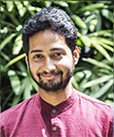 Ajai Sreevatsan
Ajai Sreevatsan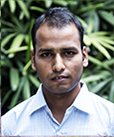 Ajeet Kumar
Ajeet Kumar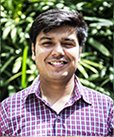 Aman Verma
Aman Verma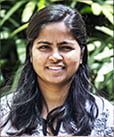 Apurva Olwe
Apurva Olwe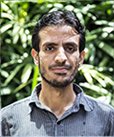 Asaf Ali Lone
Asaf Ali Lone Ashwathy Anand
Ashwathy Anand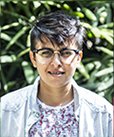 Chandni Arun N Parekh
Chandni Arun N Parekh Chandrakanta Patel
Chandrakanta Patel Haifa Zubair
Haifa Zubair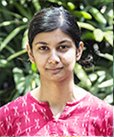 Jayati Narain
Jayati Narain Kavina Patel
Kavina Patel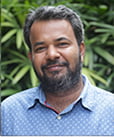 Md. Mahtab Alam
Md. Mahtab Alam Nikhil Jain
Nikhil Jain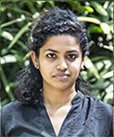 Nikhila Anoth
Nikhila Anoth Niyati Dave
Niyati Dave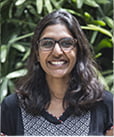 Ooha Uppalapati
Ooha Uppalapati Pawan Paramanandan
Pawan Paramanandan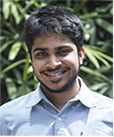 Pranav Kuttaiah
Pranav Kuttaiah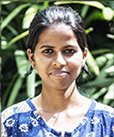 Priyanka Gajbhiye
Priyanka Gajbhiye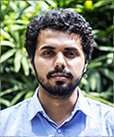 Pushkal Shivam
Pushkal Shivam Sai Ratna Chaitanya Gurugubelli
Sai Ratna Chaitanya Gurugubelli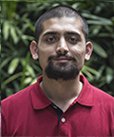 Saubhagya
Saubhagya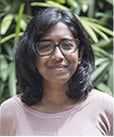 Sindhuja Janakiraman
Sindhuja Janakiraman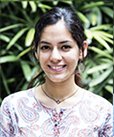 Sonal Sharma
Sonal Sharma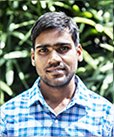 Sushil Kumar Bhagvanta Prasad
Sushil Kumar Bhagvanta Prasad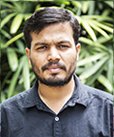 Swapnil Gedam
Swapnil Gedam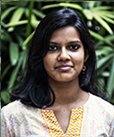 Swati Pathak
Swati Pathak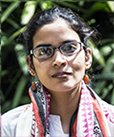 Syeda Arshiya Sultana
Syeda Arshiya Sultana TejInder Singh
TejInder Singh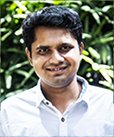 Vineet Kashyap
Vineet Kashyap